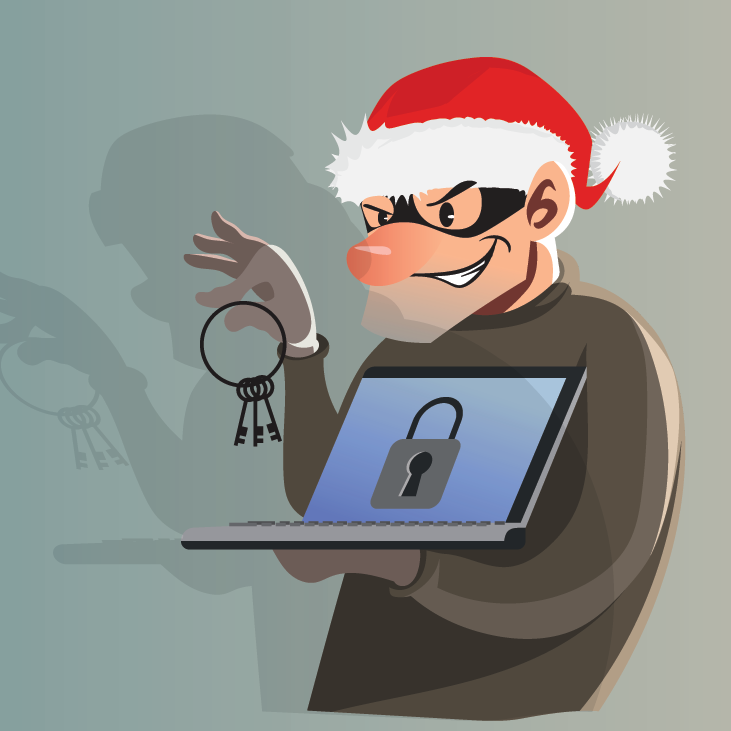Blogs By this
author
- Embracing the Modern Workplace
- Unlock Business Agility with Outsourced IT Services
- Social Engineering Attacks: Proofpoint’s 2022 Social Engineering Report
- Increasing Email Security to Avoid Business Email Compromise
- How to Protect Yourself Against Ransomware Attacks
- Cyber Security Risk Management – Threats are Evolving Much Faster Than Australian Businesses
- How to Avoid Being Scammed Online
- How to Prevent Phishing Attacks
- AWS Migration Competency – recognition of Comunet’s leadership and expertise in cloud migration services
- Myth Busting Cloud Security – How Secure is the Cloud?
- The Log4j Vulnerability: What Happened and What’s the Impact
- The Software Development Life Cycle
- What is a Business Analyst and what do they do?
- Off the Shelf vs Custom Software – 7 Things to Consider
- The COVID-19 digital vaccination certificate and the value of cyber security audits
- Comunet and AWS – delivering secure, scalable and trustworthy services non-profits
Related blogs
to this blog
- What is ISO 27001 Certification?
- Protect Your Business: The Essential Eight and Beyond
- An Overview of ISO 27001:2022
- Social Engineering Attacks: Proofpoint’s 2022 Social Engineering Report
- Increasing Email Security to Avoid Business Email Compromise
- How to Protect Yourself Against Ransomware Attacks
- Cyber Security Risk Management – Threats are Evolving Much Faster Than Australian Businesses
- How to Avoid Being Scammed Online
- How to Prevent Phishing Attacks
- Myth Busting Cloud Security – How Secure is the Cloud?
- The Log4j Vulnerability: What Happened and What’s the Impact
- The COVID-19 digital vaccination certificate and the value of cyber security audits
- Passwords are not enough – why you need Multi Factor Authentication
- Building innovation culture
- Getting out of the swamp: Accelerated Data Lake on AWS
With the end of the year and the holiday period impending, people are excitedly buying gifts, organising events, and planning holidays (perhaps even interstate). This time of year is brilliant, and for many it will be an opportunity to take a break and switch off for a few days. With holiday season excitement comes exhaustion from the year (or years) that have hit us hard. Exhaustion can cause complacency and a lack of attention to detail, which is what the hackers are hoping for! Check out our Christmas cyber security tips below to keep you, your business and your loved ones cybersafe during this festive season.
1. Verify the web address of the shopping sites you visit. There are many copycat websites of large retailers out there. Before you shop, check that the website URL starts with ‘HTTPS’ and that the name is correctly written.
2. Cyber criminals take advantage of SMS update notifications for deliveries during the Christmas period. Be aware of spam messages containing malicious links. Lookout for spam messages by checking the sender, looking at the spelling and grammar of the message, suspicious looking URLs or requests for personal information.
3. When donating to a charity this gift giving season, do your research to ensure your contributions go to beneficial and legitimate causes, and not scammers’ pockets.
4. E-cards are a common way to send a Christmas card these days but not all are as sweet as they seem. Before you open an e-card, check with the sender via other means to check they sent you a card.
5. Romance scammers tend to prey on those who might be lonely during this period. To ensure you or someone you know doesn’t fall victim to a scam of the heart, be aware of sharing personal or intimate information on social media or dating sites, and never share money or credit card information.
If you want to test your skills on whether you can accurately spot a scam, head to scamspotter.org. It will not only test your scam knowledge, it also has some funny videos about cyber security.
